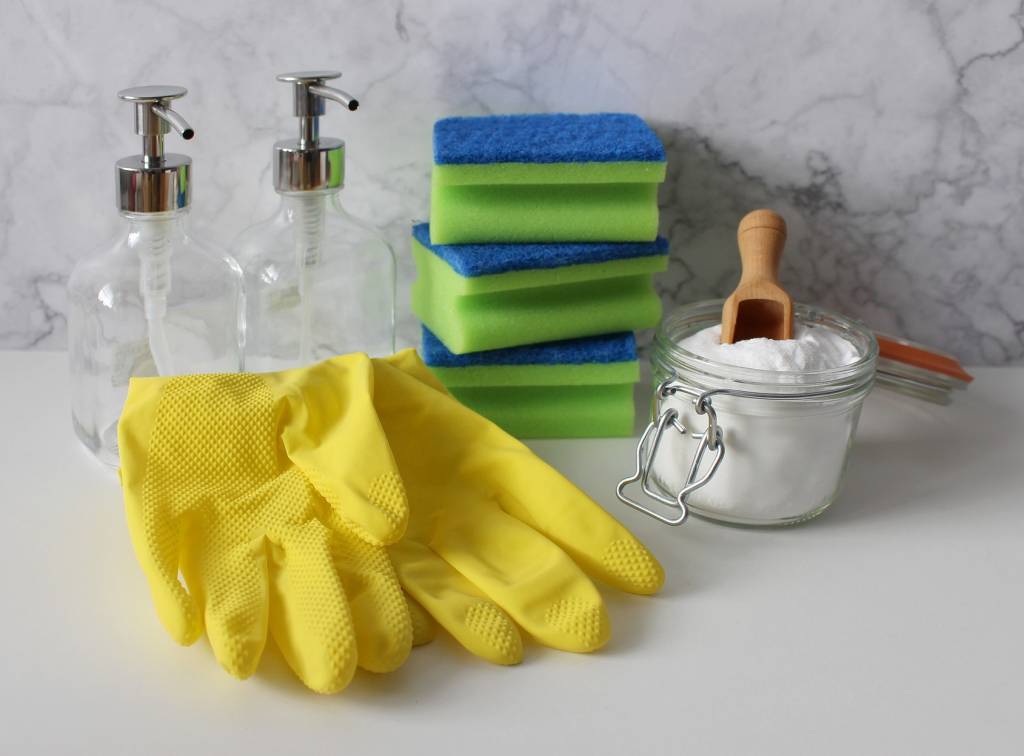18 Jun A Guide to Cabinet Cleaning and Maintenance
Wondering how to keep your new cabinets looking their finest? Proper care involves attentive cleaning, polishing and avoiding certain household cleaners. Here are recommended methods for cabinet cleaning and maintenance that will bring you a lifetime of use and satisfaction.

After Installation
Wipe your cabinets inside and out with a soft, damp cloth.
Dry immediately with another clean, soft cloth.
When cleaning your cabinets, always wipe in the direction of the wood grain.
Basic Cleaning Tips
Routine cleaning with appropriate materials will help prevent long-term damage to your finish.
Wipe with a dampened cloth and promptly wipe dry with a dry cloth.
To remove oil, grease, food residue or daily spills, use a clean cloth dampened with a solution of mild dish washing liquid and water. Do not use your dishcloth to clean the cabinets, as it may contain remnants of detergents and grease that can have a harmful effect on the finish.
Avoid using cleaners that contain the following: bleach, ammonia, citrus products, mineral oil, organic solvents; harsh detergents, strong soaps, abrasive cleansers; or self-polishing waxes (particularly products that contain silicone).
Keep humidity and temperature levels in your home within a consistent range to avoid swelling and shrinkage of wood.
Excess Moisture
Moisture is one of the worst enemies of any finish. Consequently, cabinets near the sink and dishwasher, as well as the baseboards, are most susceptible.
Dry off any areas immediately where water has spilled.
Be sure to use a blotting action rather than a wiping action to remove the substance.
Avoid draping dish towels or other wet items over doors.
Do not place coffee makers, crock pots or other small appliances where steam will vent directly onto cabinet surfaces.
Allow dishwasher heat and steam to dissipate before opening the door. Repeated premature releases of heat and steam can damage the adjacent cabinets over time.
Harsh Cleaners and Waxes
Harsh cleaners and self-polishing waxes can damage the finish of your cabinetry. Avoid cleaners containing ammonia, bleach, citric acid (including orange and lemon oil). Also, do not use cleaners containing waxes, which can cause build-up and create a “yellowing” effect over time.
Scratching And Abrasion
Clean only with a soft, damp cloth. Do not use scouring pads or abrasive cleansers, as they may dull fine finishes.
Laminate and Melamine
Use a soft cloth to wash surface with warm water and a mild dish washing detergent; some “stiff” paper towels may leave tiny scratches that dull the surface.
Rinse with warm water and dry with a soft cloth.
Stubborn spots and stains can be cleaned with normal domestic cleaners or soaps that have no abrasive ingredients that can scratch the laminate or melamine.
Thoroughly rinse all traces of the cleaning agent to prevent streaks from forming.
Lastly, dry the surface with a clean, absorbent cloth.
Cabinet cleaning is not required on a consistent basis, however dedicating some time to maintaining them will keep them looking fresh and new for years to come. For more information on cabinets for your home, contact us or visit our Denver cabinet showroom.



